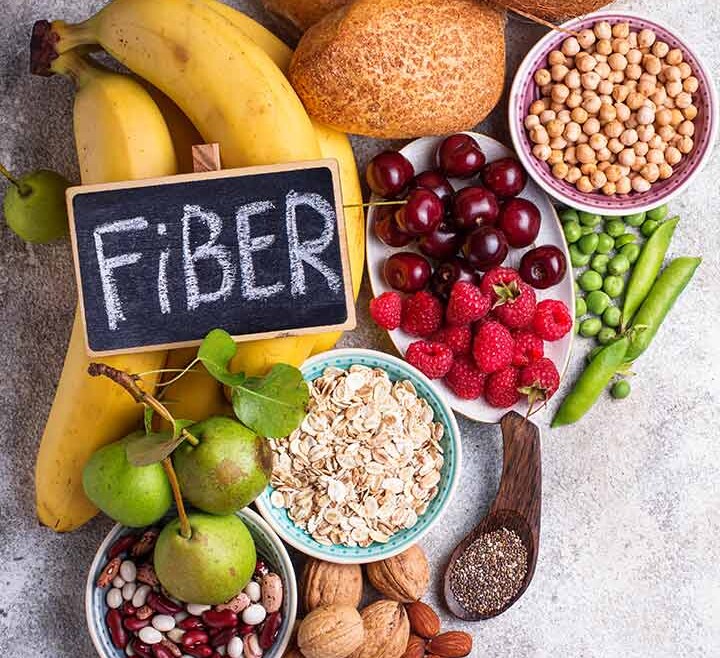
Introduction
Hormonal imbalances can make weight loss challenging by affecting metabolism, appetite, and fat storage. A well-balanced diet can help regulate hormones, improve energy levels, and promote sustainable weight loss. By incorporating nutrient-dense foods and lifestyle changes, you can support your body’s natural hormonal balance and achieve a healthier weight.
Key Hormones Affecting Weight Loss
1. Insulin
- Function: Regulates blood sugar and fat storage.
- Balance Tip: Choose complex carbohydrates, avoid refined sugars, and practice portion control.
2. Cortisol
- Function: The stress hormone that can contribute to belly fat.
- Balance Tip: Manage stress through meditation, deep breathing, and adequate sleep.
3. Leptin
- Function: Signals fullness and regulates appetite.
- Balance Tip: Prioritize sleep and avoid processed foods that disrupt leptin sensitivity.
4. Ghrelin
- Function: Stimulates hunger.
- Balance Tip: Eat protein-rich meals to keep ghrelin levels stable.
5. Estrogen & Progesterone
- Function: Influence fat distribution and metabolism.
- Balance Tip: Consume fiber-rich foods and maintain a healthy gut microbiome.
Dietary Strategies for Hormonal Balance and Weight Loss
1. Increase Protein Intake
- Benefits: Supports muscle mass, stabilizes blood sugar, and regulates hunger hormones.
- Sources: Lean meats, eggs, fish, dairy, tofu, and legumes.
2. Incorporate Healthy Fats
- Benefits: Essential for hormone production and reducing inflammation.
- Sources: Avocados, nuts, seeds, olive oil, and fatty fish.
3. Choose Complex Carbohydrates
- Benefits: Helps prevent insulin spikes and provides steady energy.
- Sources: Whole grains, quinoa, oats, sweet potatoes, and legumes.
4. Boost Fiber Intake
- Benefits: Supports digestion, regulates estrogen levels, and prevents cravings.
- Sources: Leafy greens, vegetables, fruits, whole grains, and beans.
5. Stay Hydrated
- Benefits: Supports metabolism, detoxification, and hormonal function.
- Sources: Water, herbal teas, and water-rich foods like cucumber and watermelon.
Hormone-Balancing Meal Plan for Weight Loss
Breakfast
- Scrambled Eggs with Avocado and Whole-Grain Toast for protein and healthy fats.
- Chia Seed Pudding with Almond Milk and Berries for fiber and antioxidants.
Lunch
- Grilled Chicken Salad with Olive Oil Dressing and Quinoa for balanced macronutrients.
- Lentil Soup with Whole-Grain Crackers for fiber and plant-based protein.
Dinner
- Baked Salmon with Roasted Vegetables and Brown Rice for omega-3s and sustained energy.
- Stir-Fried Tofu with Spinach and Quinoa for a plant-based, hormone-friendly meal.
Snacks
- Greek Yogurt with Flaxseeds and Berries for probiotics and fiber.
- Hummus with Carrot and Cucumber Sticks for a fiber-rich, satisfying snack.
Lifestyle Tips for Hormonal Balance and Weight Loss
- Manage Stress: Practice mindfulness, yoga, or deep breathing to reduce cortisol levels.
- Prioritize Sleep: Aim for 7-9 hours per night to regulate hunger hormones effectively.
- Exercise Regularly: Incorporate strength training and cardio to boost metabolism.
- Limit Sugar and Processed Foods: Prevents insulin resistance and unnecessary hormonal fluctuations.
Conclusion
Balancing hormones is key to effective and sustainable weight loss. By adopting a nutrient-rich diet, managing stress, prioritizing sleep, and maintaining an active lifestyle, you can support your body’s natural hormone regulation and achieve long-term weight management success.

